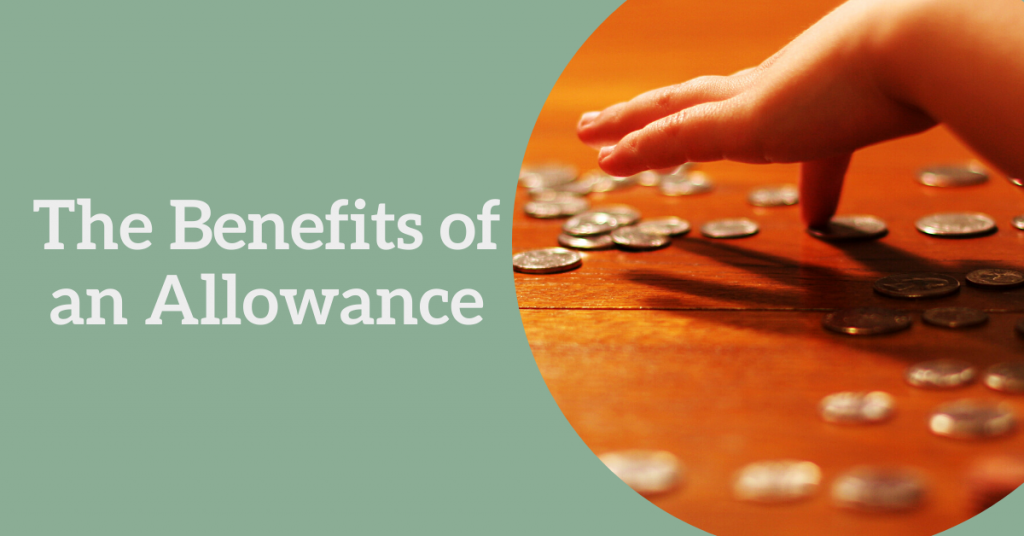By Chew Yu Xuan, Scott Koh, and Grace Ong (Year 12 MarComm interns)
Money is a hard topic to talk about. There are a lot of things about money that are difficult to explain to younger children, and it is sometimes challenging for parents to even get their children interested in understanding financial literacy, as it’s usually not the most exciting of topics.
But arguably one of the best and most popular tools which experts believe can make learning about financial literacy more fun and engaging for children is providing them with an allowance.
Therefore, today we are going to dissect and venture into the topic of allowances, and explore:
- the ways it can benefit your child
- the common issues certain children may face, and…
- some potential solutions other parents have suggested to overcome them.
1. The Concept of Saving, Introduced
By giving your child an allowance, effectively you are enabling them to be in charge of their money. Now, they can easily learn the lesson of “no pain, no gain” or that you have to sacrifice certain things in the present for a larger benefit in the future, the ter.
For example,
- You give your child a monthly allowance
- They spend it to buy snacks/candies/whatever they want that is within the amount of allowance
- One day they want to buy the latest Nike sneakers that has just been released, and find that it costs more than what their monthly allowance is
- They now realise that if they really want to buy it, they have to stop buying these snacks/candies and ACCUMULATE the amount of allowance gained until they have enough money to purchase the sneaker
And voila, in simple terms your child not only understands the concept of saving, but can even apply the concept in their own life practically.
So why is saving important, exactly? For adults, the answer is pretty obvious, but for children, it introduces the significance of long term planning. This is a soft skill that is extremely crucial, so the earlier a child gets exposed to it and more importantly, actively practices it, the more they will be familiar with it and recognise how vital saving is.
2. Understand the Responsibilities and Hardships of Earning Money
For the concept of an allowance to be truly effective, it has to be given in a proper scheduled manner, and not ad hoc.
Setting a fixed amount of allowance per week/month and pegging that to some goals and tasks to be achieved and completed would be effective. It exposes the child to the fundamental understanding of having to work hard to earn money and that money does not just fall into their hands! Extra rewards or bonuses can be put in place for when they voluntarily help out with chores, exhibit impressive behaviour, or do something that you think deserves a reward! It acts as a catalyst in teaching them the responsibilities when handling money. Your child is more likely to spend the allowance earned more sensibly as those are the returns from their ‘blood, sweat and tears’!
Want your child to start learning to manage money like an adult? Start early! Let the concepts of spending and saving be part of their lives early on, they are more likely to stick with them in the long term.
3. Allowances provide children with an opportunity to learn from mistakes
It may seem careless to give your child money and then complete freedom to spend it how they wish to. Unsurprisingly, in the beginning, they are likely to spend it all naively on poor decisions and things they don’t really need and which they’ll soon regret buying.
However, while this may seem like an actual drawback, mistakes are actually an important part of the learning process. When you make a bad mistake and suffer bad consequences, it’s likely you won’t repeat it again. Therefore, when making mistakes can sometimes be inevitable, it’s arguably ter for your children to learn about the consequences of poor financial decisions when they’re still young, and when the risks are still relatively small and harmless; rather than having them make similar mistakes in adulthood, but when the stakes become a lot higher and consequences can become irreversible.
If they blow all their allowance immediately on snacks and candies, they’ll soon learn the importance of saving and practising restraint; if they only have a limited amount of allowance to spend every week, they’ll soon learn the importance of setting priorities and budgeting; if they want to buy a pricey new toy but don’t currently have enough money, they’ll have to learn the importance of delaying gratification.
In a nutshell, an allowance can give children the necessary first-hand experience of handling their own money and making their own decisions and mistakes to allow them to learn more about good personal financing.
 While we advocate that having and managing an allowance is intrinsically good practice for a child, we also understand that there can be issues and limitations to the concept depending on the circumstances of each household.
While we advocate that having and managing an allowance is intrinsically good practice for a child, we also understand that there can be issues and limitations to the concept depending on the circumstances of each household.
1. It’s Just Not Realistic
For some families, giving children an allowance may just not be practical, and that is OKAY. For bigger families who have many children or whose finances are a bit strained, giving children a weekly/monthly allowance may just not be feasible.
Potential Solution:
To still achieve the benefits above, there are other ways to teach children the concept of savings and spending. Here are some other things that you can use instead of money to inculcate the habit of ‘working’ for their ‘money/rewards’:
– Snacks
– A Small Family Trip
– Being able to stay up longer
– More time to play
– Anything that your children love!
For example, instead of a RM10 allowance a week against the set chores and behavior expectations, you could give your child 2-hours of online playtime or gaming time a week. For extra good behavior, perhaps a reward of an additional 30 minutes of playtime. If they really want to biggest, latest Lego set, then perhaps that playtime could be offset and accumulated to buy their Lego in 3 months’ time.
Be creative! When allowance is not an option, there are many out-of-the-box ideas that you can think of, or discover on the Internet.
2. Worth a reward?
Tying the whole idea of allowance to chores is tricky and can leave the child with a counterproductive and misleading impression about family and personal responsibilities. They might develop the thinking that helping out with chores always deserves a reward, when they are simply just doing their part as a member of the family.
To put things into perspective, think about it this way, should you give your child money whenever they wash the dishes after dinner? No, this is the bare minimum that they should contribute to the family. In the long term, your child might develop the mindset of not having the need to perform chores when they do not need allowance. It’s just not sustainable!
Potential Solution:
So, are there other ways to counteract this problem? Yes. Do not inform your child about the allowance until they have completed their chores. This ensures that your child is performing the chores out of their own will and you even have the chance to evaluate their performance and decide if it is worth a reward.
3. Kids may begin to feel entitled towards an Allowance
Unlike the chore-based commission system, an allowance is a consistent amount of money your child can always count on receiving regardless of whether they worked to earn it or not. The biggest potential issue with this then is that in some cases, children may get so used to getting this unconditional pocket money, that they’ll begin feeling entitled to it, or even start seeing it as their right.
This potential entitlement may create a risk of some children developing an over reliance on their parents for money and an impression that their parents will always be around to provide for them, and experts suggest that this can often lead to a lack of motivation for work and a poor work ethic even as they progress into adulthood.
For an allowance to be successful, children need to understand that it is a privilege, not a requirement, or else when they feel like they are owed an allowance, the moment you stop giving one to them, they’ll start getting upset or resentful about it, which can be counterproductive to what the goal you wish to achieve is.
Potential Solution:
Presenting different ways they can work to earn an allowance instead of just expecting one can help to reduce the likelihood of your child feeling entitled.
One suggestion would be to reward them for performing other tasks that aren’t in the usual chore routine such as painting the house, mowing the lawn, or washing the car. Some parents also suggest that rewarding your kids for good grades can also work and be motivating for them, but this suggestion truly depends on the child and doesn’t necessarily apply to everyone.
Conclusion
Overall, allowances can be a great opportunity to develop crucial financial skills at an early age when done right. Every family is different, so the best way to decide if allowances are really beneficial for your children, is to just try out different things as well as observe what works for you and your family and in the end, make the decision that you believe is best for your child and their future.








